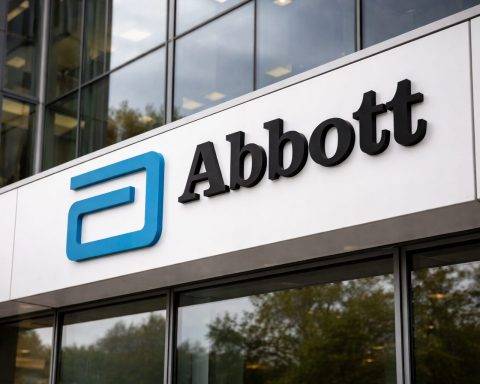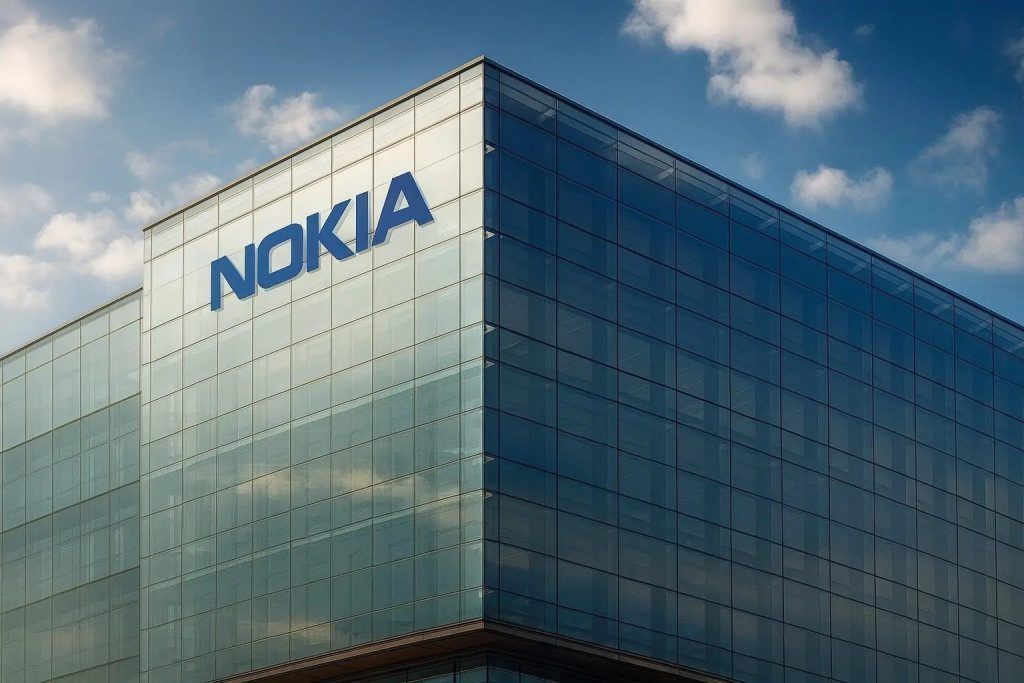Rocket Companies Inc. (NYSE: RKT) — the Detroit-based parent of Rocket Mortgage, Redfin and Mr. Cooper — is surging in Tuesday’s session. By early afternoon on November 25, 2025, RKT stock was trading around $19.6, up almost 8% on the day and extending a sharp multi‑day rally that has lifted the share price roughly 17% since last Wednesday’s close near $16.80. MarketBeat+2Rocket Companies Investor Rela…
The move comes as investors pile into a high‑beta housing and fintech name that’s suddenly sitting at the center of three major themes: AI‑driven real estate tools, a wave of blockbuster acquisitions, and expectations for lower mortgage rates.
RKT stock today: price, volume and trading backdrop
As of around 2:00 p.m. Eastern on November 25, Rocket Companies shares were quoted near $19.56, up about 7.9% from Monday’s close around $18.12. MarketBeat+1
Key intraday stats:
- Day’s range: roughly $18.25 – $19.64
- 52‑week range:$10.06 – $22.56
- Volume: about 24 million shares traded vs. an average near 20 million
- Market cap: roughly $41 billion
- Trailing P/E: well above 200x, reflecting depressed GAAP earnings and heavy adjustments
MarketBeat
Even after today’s pop, RKT still trades below its 52‑week high around $22.56 set in September, leaving room on the upside if momentum and earnings continue to improve. MarketWatch+1
Over the last five trading days, the stock has marched steadily higher:
- Nov. 19: ~$16.78
- Nov. 20: ~$16.17
- Nov. 21: ~$17.44
- Nov. 24: ~$18.12
- Nov. 25 (intraday): ~$19.5+ Rocket Companies Investor Relations+1
That’s a roughly 16–17% gain in under a week, with volume running well above normal — a classic sign that both retail traders and institutions are leaning into the move. Short interest is still elevated, with nearly 30% of the float sold short, according to MarketBeat, suggesting that short covering may be amplifying the rally even as days‑to‑cover sits under one day thanks to heavy trading. MarketBeat
The new Rocket: AI‑powered, vertically integrated and much bigger
Rocket Companies today looks very different from the mortgage lender that went public in 2020.
According to its investor relations site, Rocket is now positioned as an “AI‑fueled homeownership platform” spanning mortgage, real estate search, home sales and personal finance through brands including Rocket Mortgage, Redfin, Mr. Cooper, Rocket Homes, Rocket Close, Rocket Money and Rocket Loans. Rocket Companies Investor Relations+1
$14.2 billion Mr. Cooper deal creates a servicing giant
On October 1, 2025, Rocket closed its $14.2 billion all‑stock acquisition of Mr. Cooper Group, a deal the company calls “the largest independent mortgage company deal in history.” The combination brings together America’s largest home loan originator (Rocket) with the country’s largest mortgage servicer (Mr. Cooper), creating a servicing portfolio of nearly 10 million homeowners. Rocket Companies Investor Relations+1
Key integration details:
- Each Mr. Cooper share was exchanged for 11 shares of Rocket Class A stock, significantly increasing Rocket’s public float to about 35%. Rocket Companies Investor Relations+1
- Mr. Cooper CEO Jay Bray became President & CEO of Rocket Mortgage and joined Rocket’s board, bringing more than 30 years of servicing and originations experience. Rocket Companies Investor Relations+1
This transaction dramatically scales Rocket’s recurring fee revenue and gives it far more touchpoints with existing homeowners — a key advantage as the company leans into AI‑driven cross‑selling.
Redfin acquisition and AI home search
Earlier this year, Rocket agreed to acquire Redfin, the online real‑estate brokerage, in a stock deal valued around $1.8 billion, with the stated goal of combining home search and mortgage financing under one roof. MarketWatch+1
That Redfin deal is already yielding visible product moves:
- Redfin, now integrated into Rocket’s ecosystem, has rolled out an AI‑based home search tool that lets users describe the homes they want in natural language instead of ticking boxes on a form.
- In early tests, the AI search experience drove a 47% lift in interest for tours and services, according to coverage of today’s RKT surge. StocksToTrade
If those uplift numbers prove sustainable at scale, it would significantly increase the funnel of high‑intent buyers Rocket can steer into Rocket Mortgage and its newly enlarged servicing business.
Internal AI tools across the mortgage stack
Rocket isn’t just using AI on the consumer front end. Its Q3 2025 earnings release highlighted a string of AI tools aimed at productivity and conversion: Rocket Companies Investor Relations+1
- Pipeline Manager AI Agent to help loan officers prioritize the right leads, boosting follow‑ups, credit pulls and refinance applications in pilot tests.
- Purchase Agreement AI Agent that automates county‑specific contract reviews, cutting processing time by about 80% and saving an estimated 150,000 hours of manual work annually.
- Rocket Pro Underwriting AI Agent for broker partners, which automates document verification, compliance checks and regulatory reviews, reducing some tasks from more than four hours to under 15 minutes.
CEO Varun Krishna has framed these initiatives as part of a “vertically integrated homeownership platform for the AI era,” positioning Rocket as a technology‑first operator in a traditionally slow‑moving industry. Rocket Companies Investor Relations
Q3 2025 earnings: stronger volumes, narrower loss
Rocket’s latest quarterly numbers help explain why Wall Street is warming up to the stock even as valuation looks rich.
For the third quarter of 2025, Rocket reported: Rocket Companies Investor Relations+1
- Total revenue, net:$1.61 billion
- Adjusted revenue:$1.78 billion, above the high end of guidance
- GAAP net loss:$124 million, a big improvement from a $481 million loss in Q3 2024
- Adjusted net income:$158 million
- Adjusted EBITDA:$349 million
- Adjusted diluted EPS:$0.07
Operationally, the mortgage engine showed solid growth:
- Net mortgage rate lock volume:$35.8 billion, up 20% year over year
- Closed loan origination volume:$32.4 billion, up 14%
- Gain‑on‑sale margin:2.80%, slightly higher than a year earlier
Rocket also ended the quarter with $9.3 billion in total liquidity, including $5.8 billion in cash (of which $4.0 billion was prefunding debt tied to the Mr. Cooper deal) and significant undrawn borrowing capacity on warehouse and MSR lines. Rocket Companies Investor Relations
Q2 had already shown an improvement trend, with net revenue of $1.36 billion and positive adjusted income despite a small GAAP loss, setting the stage for Q3’s stronger performance. SEC
Third‑party coverage noted that while revenue fell slightly short of some analyst expectations, sales rose more than 20% year over year and net losses narrowed sharply, reinforcing the story of a business recovering from the worst of the rate shock. Yahoo Finance+1
What Wall Street expects from RKT now
Consensus still says “Hold,” even as some targets move higher
Despite the recent rally and buzz around AI, Rocket Companies is not a broad‑based Wall Street darling — at least not yet.
MarketBeat data show: MarketBeat+2MarketBeat+2
- Consensus rating:Hold
- Analyst mix: 0 Strong Buys, 4 Buys, 9 Holds, 3 Sells
- Average 12‑month price target: about $18.18
- Target range:$7 – $25
With the stock now near $19.5, shares are trading above the average price target, implying modest downside of roughly 5–6% unless analysts lift their numbers.
However, the most recent rating actions have skewed bullish:
- Oppenheimer initiated coverage earlier this month with an “Outperform” rating and a $25 price target, citing Rocket’s acquisitions and falling mortgage rates as key tailwinds. Benzinga+1
- BTIG reiterated a Buy with its own $25 target on November 19. Benzinga
- Wells Fargo updated its view in early November, contributing to a cluster of fresh analyst attention. Benzinga
According to Yahoo Finance and Seeking Alpha aggregates, analysts currently expect: Nasdaq+3Yahoo Finance+3Barron’s+3
- 2025 revenue of roughly $6.6 billion
- 2026 revenue approaching $10.4 billion after the full integration of Mr. Cooper and Redfin
- 2025 EPS around $0.11, rising sharply thereafter; MarketBeat notes a forecast jump from $0.15 to $0.49 in the coming year, implying triple‑digit earnings growth — if management delivers.
Bearish voices highlight valuation, leverage and integration risk
Not everyone is convinced. A recent Seeking Alpha note downgraded Rocket to Sell, warning that after the stock’s run‑up and big acquisitions, the company faces macro headwinds, potential margin compression and valuation risk. Seeking Alpha+1
Separately, analysis from Simply Wall St argues that bullish narratives projecting around $8.7 billion in revenue and $3.2 billion in earnings by 2028 imply about 19% annual revenue growth and a massive swing from current losses — assumptions that may be too aggressive given regulatory scrutiny and the complexity of integrating multiple large deals. Simply Wall St
On the ownership front:
- Director Matthew Rizik sold 5,000 shares on November 20 but still holds more than 3.18 million shares — a small trim relative to his overall stake. GuruFocus+1
- New 13F filings show firms like AlphaCore Capital LLC and Clifford Capital Partners LLC establishing or increasing positions in RKT, signaling institutional interest in the name’s long‑term story. MarketBeat+1
Macro backdrop: mortgage rates ease off the peak
Rocket’s business is tightly tied to the direction of U.S. mortgage rates and housing demand.
The good news for RKT bulls: rates are down from their 2023–2024 highs, even if they remain elevated by historical standards.
- Freddie Mac data show the average 30‑year fixed mortgage rate around 6.24–6.26% in mid‑November 2025, down from roughly 6.8–6.8%+ a year ago. AP News+1
- Multiple outlets, including NerdWallet and Bankrate, show 30‑year conventional rates hovering near the low‑6% area as of November 24–25. Bankrate+1
Lower (though still high) rates are starting to show up in housing data:
- U.S. pending home sales rose 1.9% in October 2025, beating expectations, as lower borrowing costs lured some buyers back into the market, even though pending sales remain slightly below year‑ago levels. Reuters
For Rocket, this environment can be a sweet spot:
- Rates are low enough to drive refinancing and purchase demand,
- but still high enough that mortgage capacity remains constrained, which can support pricing power and margins for efficient, scaled players.
If the Federal Reserve continues to signal a bias toward gradual easing, mortgage‑sensitive names like RKT could remain leveraged plays on any sustained housing recovery. Investopedia+1
Key risks RKT investors should watch
Even fans of the stock acknowledge that Rocket carries significant risk. Some of the big ones:
1. Integration of Redfin and Mr. Cooper
Rocket is digesting two transformational acquisitions at once:
- $14.2B Mr. Cooper — the largest independent mortgage deal in history
- ~$1.8B Redfin — a major online real estate marketplace MarketWatch+3Rocket Companies Investor Rel…
Merging technology stacks, cultures, and servicing platforms at this scale is complex. The Q3 release already shows acquisition‑related expenses and bridge‑facility financing costs hitting GAAP results, and management is excluding many of these items from its adjusted metrics. Rocket Companies Investor Relations+1
If cost synergies take longer than expected, or if client experience suffers during the integration, margins — and the current valuation — could come under pressure.
2. Interest‑rate and housing‑cycle sensitivity
Rocket’s earnings are highly sensitive to:
- 30‑year mortgage rates,
- refinance waves, and
- home sales volumes.
A renewed spike in rates, a sharp economic slowdown, or another leg down in housing activity could quickly reverse recent gains in rate locks and originations. Recent data show some improvement, but pending home sales and overall transaction volumes are still below long‑term norms. Reuters+2AP News+2
3. Rich valuation and high short interest
At today’s price, Rocket trades at: MarketBeat+1
- A P/E over 240x trailing earnings
- A price‑to‑book ratio around 4.2x
- A consensus price target below the current quote
Those metrics signal that a lot of future growth and synergy is already priced in. Any earnings miss, regulatory setback or housing slowdown could trigger a sharp rerating, especially with short sellers already targeting nearly 30% of the float. MarketBeat
4. Regulatory and legal scrutiny
Simply Wall St and other analysts flag that combining a top originator, the largest servicer and a major online brokerage under one umbrella may draw heightened regulatory and legal scrutiny, particularly around consumer data, pricing and competition. Simply Wall St+1
That doesn’t mean the deals won’t work — but it does add another layer of execution risk and potential cost.
What’s next for RKT stock?
Looking ahead, investors and traders watching RKT will likely focus on a few key catalysts:
- Integration updates and synergy milestones
- Concrete numbers on cost savings, cross‑selling between Redfin, Rocket Mortgage and Mr. Cooper, and servicing‑portfolio growth.
- Evidence that AI tools are sustainably lifting conversion and cutting processing times, not just in early pilots. Rocket Companies Investor Relations+1
- Next earnings report
- Trading calendars currently show Rocket’s next earnings release expected around February 19, 2026, though the exact date could change. TradingView+1
- Investors will be watching whether Q4 continues Q3’s momentum in rate locks, margins and adjusted profitability.
- Macro data and Fed signals
- Weekly Freddie Mac mortgage‑rate updates,
- Monthly existing and pending home sales,
- And Federal Reserve communications about the pace of future rate cuts will all feed directly into sentiment on mortgage lenders like Rocket. FRED+2Reuters+2
- Analyst target revisions and rating changes
- With RKT now trading above its average price target, further upside may depend on upward revisions from major firms or a continued squeeze in short interest. MarketBeat+2Benzinga+2
Bottom line: high‑beta AI + housing play, not a low‑risk bond proxy
On November 25, 2025, RKT stock is behaving like a high‑beta, catalyst‑driven story rather than a sleepy income name:
- The company is bigger and more vertically integrated after bold deals for Redfin and Mr. Cooper.
- It is positioning itself as an AI‑powered, data‑rich homeownership platform with meaningful early traction.
- At the same time, the shares carry rich valuation, heavy housing‑cycle exposure, large integration projects and high short interest.
For traders, that combination can be powerful — both on the way up and on the way down.
For longer‑term investors, Rocket Companies increasingly looks like a leveraged bet on the U.S. housing market, mortgage technology and management’s ability to execute a complex integration at scale. Whether today’s nearly 8% jump is the start of a new leg higher or just another volatile swing will depend on how those factors evolve over the next several quarters.
Disclaimer: This article is for informational purposes only and does not constitute investment, financial, tax or legal advice. Stock investing involves risk, including the possible loss of principal. Always conduct your own research and consider consulting a licensed financial advisor before making investment decisions.









